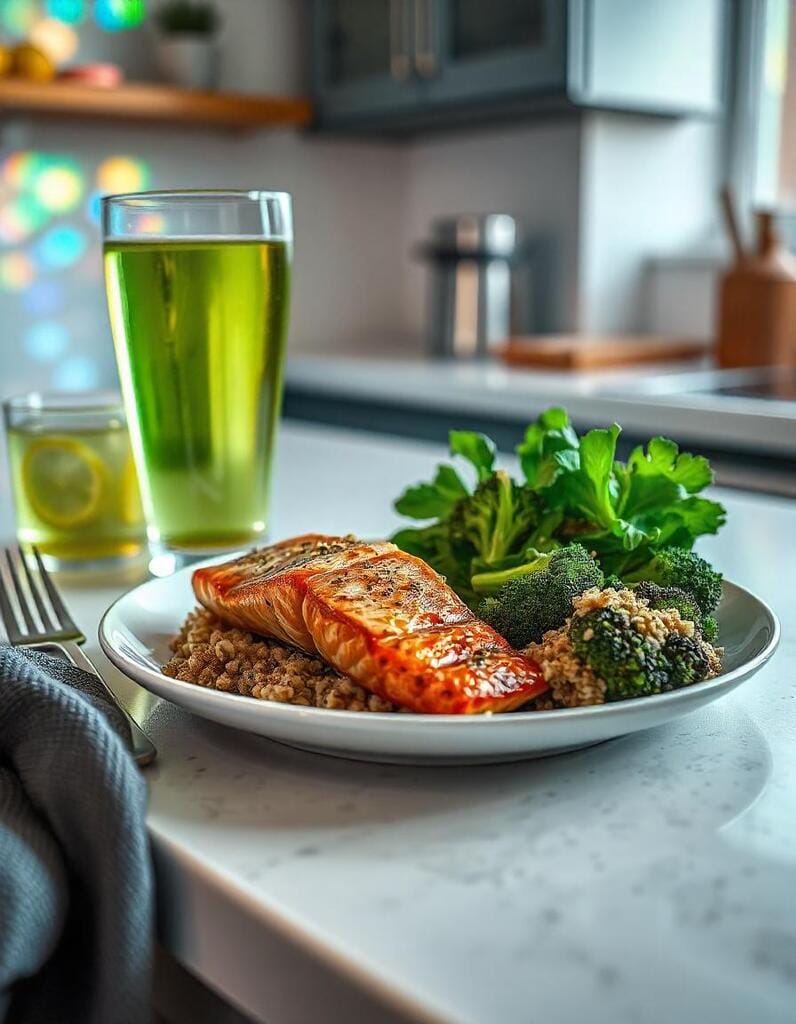Best Anti-Inflammatory Diet: Foods, Benefits, and Meal Plan for Optimal Health
Inflammation is a natural response of the body to injury or infection. However, chronic inflammation can lead to various health issues, including arthritis, diabetes, heart disease, and even cancer. Adopting an anti-inflammatory diet can help mitigate these risks and improve overall health. In this blog, we explore the best diet strategies to combat inflammation, along with tips, benefits, and answers to common questions.
What is an Anti-Inflammatory Diet?
An anti-inflammatory diet focuses on consuming foods that reduce inflammation while avoiding those that exacerbate it. This diet emphasizes whole, nutrient-dense foods, rich in antioxidants, omega-3 fatty acids, and other compounds that fight inflammation.
Key Components of an Anti-Inflammatory Diet
1. Fruits and Vegetables
Fruits and vegetables are packed with vitamins, minerals, and antioxidants. These nutrients help neutralize free radicals, reducing oxidative stress and inflammation.
- Best Choices: Berries, oranges, leafy greens, broccoli, and bell peppers.
- Pro Tip: Aim for a colorful plate to ensure a variety of nutrients.
2. Healthy Fats

Not all fats are bad. Healthy fats, especially omega-3 fatty acids, are known for their anti-inflammatory properties.
- Best Sources: Fatty fish (salmon, mackerel, sardines), walnuts, flaxseeds, and olive oil.
- Avoid: Trans fats and excessive saturated fats found in processed foods.
3. Whole Grains
Refined grains can trigger inflammation, whereas whole grains are rich in fiber and nutrients that help maintain gut health.
- Best Options: Quinoa, brown rice, oats, and whole wheat.
- Tip: Check labels to ensure products are 100% whole grain.
4. Legumes and Beans
Legumes are a great source of plant-based protein and fiber, both of which support a healthy gut microbiome and reduce inflammation.
- Examples: Lentils, chickpeas, black beans, and kidney beans.

5. Spices and Herbs
Certain spices and herbs are known for their powerful anti-inflammatory effects.
- Top Picks: Turmeric (curcumin), ginger, garlic, and cinnamon.
- Usage: Incorporate these into your meals or beverages for added flavor and benefits.
Foods to Avoid
1. Refined Sugars and Carbohydrates
Excessive sugar intake can trigger the release of inflammatory markers.
- Examples: Sugary drinks, candies, pastries, and white bread.
2. Processed and Fried Foods
These foods are high in trans fats and advanced glycation end products (AGEs), which promote inflammation.
- Examples: Chips, fast food, and packaged snacks.
3. Excessive Alcohol
Moderate alcohol consumption may have some benefits, but excessive intake can lead to inflammation.
- Recommendation: Limit to one drink per day for women and two for men.
4. Red and Processed Meats
These are linked to increased levels of inflammatory markers.
- Better Alternatives: Opt for lean poultry, fish, or plant-based proteins.

Sample Anti-Inflammatory Meal Plan
Breakfast:
- Oatmeal topped with blueberries, walnuts, and a drizzle of honey.
- Green tea with a slice of lemon.
Lunch:
- Grilled salmon with a side of quinoa and steamed broccoli.
- Mixed greens salad with olive oil and balsamic vinegar.
Snack:
- Sliced cucumbers and carrots with hummus.
Dinner:
- Lentil soup with a side of whole-grain bread.
- Roasted sweet potatoes and spinach.
Dessert:
- Dark chocolate (70% or higher cocoa content) and a handful of almonds.
Benefits of an Anti-Inflammatory Diet

- Reduces Risk of Chronic Diseases: Helps prevent conditions like heart disease, diabetes, and arthritis.
- Improves Gut Health: High fiber content supports a healthy microbiome.
- Boosts Energy Levels: Nutrient-dense foods provide sustained energy.
- Enhances Mental Health: Omega-3s and antioxidants support brain function and reduce depression symptoms.
- Supports Weight Management: Balanced meals prevent overeating and promote a healthy weight.
Tips for Success

- Plan Ahead: Prepare meals in advance to avoid unhealthy choices.
- Stay Hydrated: Drink plenty of water throughout the day.
- Read Labels: Avoid hidden sugars and unhealthy fats in packaged foods.
- Experiment: Try new recipes to keep your diet interesting and enjoyable.
Conclusion about best anti-inflammatory diet
Adopting an anti-inflammatory diet is a powerful step toward better health. By focusing on whole, nutrient-rich foods and avoiding inflammatory triggers, you can reduce chronic inflammation, enhance your well-being, and prevent various diseases. Start small, make gradual changes, and enjoy the journey to a healthier you.
Anti-Inflammatory Diet: Foods to Fight Inflammation
This resource from Harvard Health provides an in-depth look at anti-inflammatory foods, their benefits, and how to incorporate them into your diet.
FAQs about best anti-inflammatory diet
1. Can an anti-inflammatory diet help with arthritis?
Yes, this diet can reduce joint pain and stiffness by lowering inflammation levels in the body.
2. Is coffee anti-inflammatory?
Moderate coffee consumption may have anti-inflammatory effects due to its antioxidants. Avoid adding excessive sugar or cream.
3. How soon can I see results?
Results vary, but many people notice reduced inflammation and improved energy within a few weeks.
4. Can I follow this diet if I’m vegetarian?
Absolutely! Focus on plant-based proteins, whole grains, and plenty of fruits and vegetables.
5. Where can I find anti-inflammatory recipes?
Check out Healthline’s Anti-Inflammatory Recipes for inspiration.
By making informed dietary choices, you can take control of your health and enjoy a life free from the burdens of chronic inflammation.
